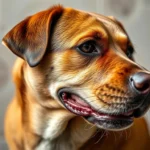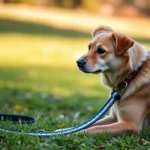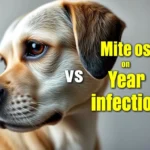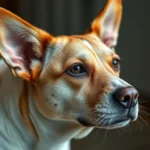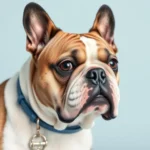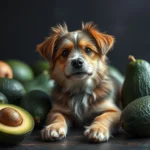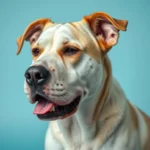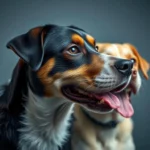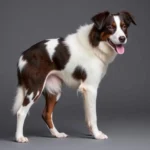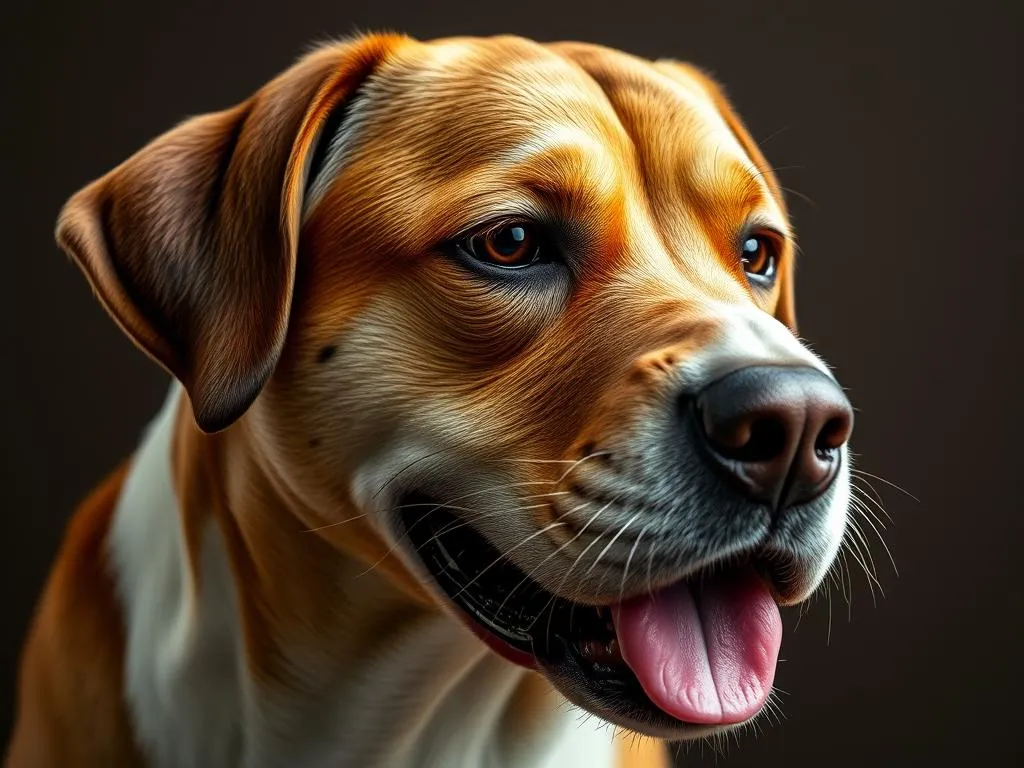
Introduction
Drooling in dogs is a common behavior that can range from normal to concerning. Dog drooling a lot typically refers to excess saliva production, which can be a natural response to various stimuli, such as eating or drinking. However, when drooling becomes excessive, it may indicate an underlying health issue that needs attention.
Understanding the difference between normal and excessive drooling is essential for pet owners. Normal drooling occurs occasionally and is often linked to specific activities, while excessive drooling can signal health problems that may require veterinary care. This article aims to educate pet owners about the causes, symptoms, and remedies for excessive drooling in dogs, ensuring that your furry friend remains happy and healthy.
Understanding Dog Drooling
What is Drooling?
Drooling, or hypersalivation, is the production of saliva that drips from the mouth. It is a natural behavior in dogs, especially when they are excited or anticipating something, like food. Dogs can drool for various reasons, and while some drooling is entirely normal, pet owners should be aware of when it crosses into excessive drooling territory.
Why Do Dogs Drool?
There are several natural reasons why dogs drool, including:
- Eating and Drinking: When dogs eat or drink, they naturally produce saliva to aid in digestion and facilitate swallowing.
- Anticipation: The smell of food or the sight of treats can trigger drooling as a natural response to excitement.
Certain breeds are more prone to drooling due to their physical characteristics. Breeds such as Bulldogs, Saint Bernards, and Bloodhounds have loose skin around their mouths, making them more likely to drool frequently.
When is Drooling Considered Excessive?
Recognizing Normal vs. Excessive Drooling
Identifying the difference between normal and excessive drooling is crucial for dog owners. Here are some signs to help you distinguish between the two:
-
Normal Drooling: Occurs during mealtime or when your dog is excited. It usually involves a moderate amount of saliva and stops once the activity is over.
-
Excessive Drooling: Involves an abnormal increase in saliva production, which may occur without any obvious reason. Signs of excessive drooling include:
- Constant dripping from the mouth
- Saliva pooling around the dog’s mouth
- A sudden increase in drooling without a clear cause
Situations That Warrant Concern
Certain situations should raise a red flag for pet owners. If you notice a sudden onset of excessive drooling, especially if it is accompanied by other symptoms such as vomiting, lethargy, loss of appetite, or difficulty swallowing, it is crucial to consult a veterinarian.
Common Causes of Excessive Drooling in Dogs
Health Issues
Several health problems can lead to excessive drooling in dogs:
- Dental Problems:
- Periodontal Disease: This common condition affects the gums and can cause significant discomfort, leading to increased drooling.
-
Oral Tumors: Growths in the mouth can lead to pain and excessive saliva production.
-
Gastrointestinal Issues:
- Nausea: Dogs may drool excessively if they are feeling nauseated due to various reasons, including illness or dietary indiscretion.
-
Foreign Objects in the Stomach: If a dog ingests a foreign object, it can cause irritation and increased drooling.
-
Neurological Disorders:
- Seizures: After a seizure, dogs may drool excessively.
- Rabies: This viral disease can cause hypersalivation, among other severe symptoms.
Environmental Factors
Environmental factors can also contribute to excessive drooling:
- Heat and Weather:
-
Heatstroke: Dogs can suffer from heatstroke, especially in hot weather, leading to increased drooling and panting.
-
Toxic Substances:
- Ingesting poisonous plants or chemicals can lead to drooling and other severe health issues.
Behavioral Causes
Behavioral factors can also lead to increased drooling:
- Anxiety and Stress: Dogs may drool excessively during stressful situations, such as thunderstorms, fireworks, or visits to the vet.
- Excitement or Anticipation: Seeing food or engaging in play can trigger drooling.
Diagnosis of Excessive Drooling
When to Consult a Veterinarian
If you notice excessive drooling in your dog, especially if it occurs suddenly or is accompanied by other concerning symptoms, seeking veterinary advice is essential. Signs that require immediate attention include:
- Sudden increase in drooling
- Vomiting or diarrhea
- Lethargy or weakness
- Difficulty swallowing or breathing
Veterinary Examination Process
When you consult a veterinarian, they will conduct a thorough examination, which may include:
- Physical Examination: The vet will assess your dog’s mouth, teeth, and overall health.
- Diagnostic Tests: Depending on the findings, they may recommend blood tests, X-rays, or ultrasounds to determine the underlying cause of the drooling.
Treatment Options for Excessive Drooling
Medical Treatments
Treatment for excessive drooling will depend on the underlying cause:
- Medications:
-
Antacids or anti-nausea drugs may be prescribed if gastrointestinal issues are identified.
-
Dental Treatments:
- If dental problems are the cause, treatments may include professional cleaning, extractions, or surgery to remove tumors.
Home Care Remedies
In conjunction with veterinary treatment, pet owners can manage excessive drooling at home:
-
Managing Dental Hygiene: Regular tooth brushing can help prevent dental issues that lead to drooling.
-
Dietary Adjustments: If dental problems are suspected, feeding soft food may help your dog eat comfortably.
Behavioral Management
If anxiety is contributing to excessive drooling, consider these strategies:
-
Training and Desensitization Techniques: Gradually exposing your dog to stressors can help reduce anxiety-related drooling.
-
Provide Comfort: Creating a calm environment during stressful situations can help alleviate drooling.
Prevention of Excessive Drooling
Regular Veterinary Care
Routine veterinary check-ups are vital for maintaining your dog’s health. Regular examinations can help catch potential issues early and ensure that your dog stays in good condition.
Maintaining Oral Health
Maintaining your dog’s oral health is essential in preventing excessive drooling:
-
Regular Teeth Cleaning: Brushing your dog’s teeth regularly can minimize the risk of dental diseases.
-
Dental Chews and Treats: Providing dental chews can help keep your dog’s teeth clean and healthy.
Monitoring Environmental Hazards
Preventing access to harmful substances and monitoring environmental conditions are crucial for your dog’s well-being:
-
Keeping Harmful Substances Out of Reach: Ensure that toxic plants, chemicals, and other hazardous materials are stored safely away from your pets.
-
Awareness of Temperature Extremes: During hot weather, ensure your dog has access to shade and fresh water to prevent heatstroke.
Conclusion
Understanding dog drooling a lot can help you differentiate between normal drooling and concerning symptoms that require veterinary attention. By being observant and proactive, you can ensure your pet remains healthy and happy. Regular veterinary visits, maintaining good oral hygiene, and monitoring your dog’s environment are crucial steps in preventing excessive drooling and addressing any underlying health issues.
FAQs About Dog Drooling
Is drooling normal for all dogs?
Yes, drooling is a normal behavior in many dogs, especially during mealtime or when they are excited. However, the extent and frequency can vary by breed.
How can I tell if my dog’s drooling is excessive?
Excessive drooling is characterized by an abnormal increase in saliva production, often without obvious reasons. If you notice constant dripping or pooling saliva, it may be excessive.
What should I do if my dog starts drooling suddenly?
If your dog begins drooling suddenly, especially if accompanied by other concerning symptoms like vomiting or lethargy, consult your veterinarian immediately.
Are there specific breeds that drool more than others?
Yes, certain breeds, such as Bulldogs, Saint Bernards, and Bloodhounds, are more prone to drooling due to their physical characteristics.
Can anxiety cause my dog to drool excessively?
Yes, anxiety can trigger excessive drooling in dogs. Stressful situations, such as thunderstorms or fireworks, may lead to increased saliva production.

